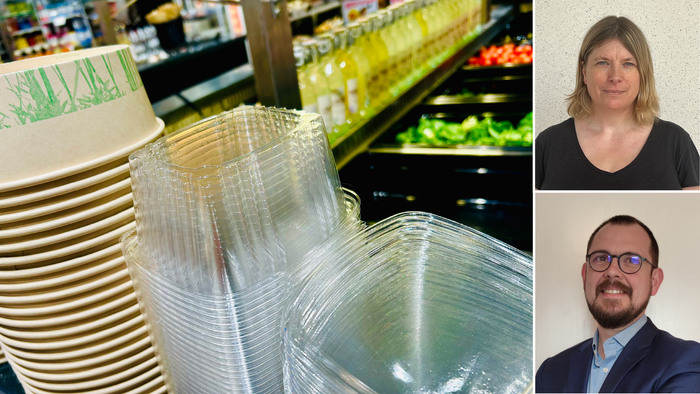Article published 29 May 2023

IRISS' combined skills and knowledge can help operationalize SSbD
- interview with Catherine Colin and Maudez Le Dantec from IPC
Hello Catherine Colin, Research Program Manager in Environment and Health, and Maudez Le Dantec, Innovation Project Manager at IPC Industrial Technical Centre for Plastics and Composites! Tell us about IPC.
- IPC is an Industrial Technical Centre dedicated to the French plastics and composites industry. We depend on the Ministry of the Economy (Directorate General for Enterprises). We work with three main activities, out of one is beneficiary support, where all plastic industry participates in collective actions for the plastic industry. We select the biggest technical challenges for the plastic industry and try to solve these challenges of the industry. The second main activity within IPC is research, where we work in European projects like IRISS to increase our knowledge and develop new technologies to support the French plastic industry. We also work with B2B activities, where we support trials of new materials and technologies providing access to our facilities.
IPC’s strategy is divided into three main axis: circular economy; industry of the future, and high added value products.
How has the past year working with IRISS been for you?
- Catherine Colin: I have a background in Safety and Sustainability, so IRISS is a perfect match for me. The past year has been a good exchange with experts who have spent ten years or more on these topics. I now have direct discussions with toxicologists for example, which I haven’t had the opportunity to do before. So multidisciplinary sharing is very powerful inside IRISS project team.
What are some activities within IRISS during the year that you want to highlight?
- Maudez Le Dantec: We started quickly with activities. What we do is that we focus on plastic packaging and provide information about the process cycle for the plastic industry; the data we have and the different players in the value chain. We have also participated in the preparation of the deliverables regarding skills and knowledge gaps. We are also working on case studies to test the JRC framework. One is dedicated to providing SSbD packaging with the multinanolayer technology, which allows reducing additives and facilitating recycling. The second will be based on paper packaging but is still under confirmation.
What were your expectations of joining IRISS?
- Catherine Colin: Our hope is that IRISS’ combined skills and knowledge can help operationalize SSbD and facilitate its deployment. With IRISS, we want to gain more knowledge, as well as share our knowledge, we wanted to be part of a network. We wanted to have the chance to discuss the topics we are working on and combine it with other experts working on environmental and human health aspects, but also social and economic performances.
- Maudez Le Dantec: Another thing is to make the SSbD concept clearer and create a bigger awareness of the concept among companies. Within IRISS, we can also help sharing ongoing SSbD activities and help companies for testing new ideas. This is very useful to adapt SSbD evaluation framework. It is also good that companies are familiar with SSbD concept at an early stage.
Why is there a need for a SSbD network?
- Catherine Colin: I believe that it would add value if IRISS’ team members could provide harmonization of SSbD requirements. A safe and Sustainable framework gives the possibility to have a global vision and a unique assessment set. The SSbD framework should bring a global balance between environmental, social and economic aspects.
- Maudez Le Dantec: In the IRISS network, we have experts that can be a support for users of the framework and explain it. One example is the JRC SSbD workshop we had when they explain how they practice their framework on selected use cases. That example helped me in making it more clear how SSbD can be operationalized. SSbD seems complex, but with this network, we can make SSbD more popular and more accessible for companies.
